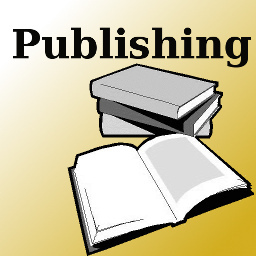 There are few prior economic models that really reach what is going on with eBooks (and the small press) today. We’ve spent a couple of years talking about all the bad things that publishers might do (or how they take advantage of authors). We’ve spent the last year or so hearing from progressive publishers about the good things they do in adding value to an author’s work and distribution.
There are few prior economic models that really reach what is going on with eBooks (and the small press) today. We’ve spent a couple of years talking about all the bad things that publishers might do (or how they take advantage of authors). We’ve spent the last year or so hearing from progressive publishers about the good things they do in adding value to an author’s work and distribution.
But there’s something still missing.
Consider: An “electronic publishing group” – and I use that term loosely – was very concerned about the possibility that someone might read an eBook and then “return” it, but didn’t seem to care that the biggest retailer in town was screwing over authors them over royalties on all sales (I’m talking about EPIC, here.). And that’s both typical and a big problem.
Publishers – specifically, the Big Six – acted as collective bargaining units for authors. That’s not their intent, sure, but because publishers make money from sales to the public, anything that hurt authors also hurt publishers.1
Amazon’s testing of IPG and independent booksellers demonstrates that they’ve come to realize that publishers served as collective bargaining units for authors as well… and small and independent authors do not have that same power.
It’s worth noting here that collective bargaining – hell, even co-ops – can be a healthy and vital part of a free-market capitalist system. (If you really want to argue that point we can in another post; read my paper first.) And it is this role that will guarantee that publishers – in some manner – continue to exist. While the many functions of a publisher can be independently sourced, the economic power of any single author is limited.
But I’m looking at this from a conflict-theory perspective, not a structural-functionalist one. While there is a specific role filled by big publishers, that does not mean that the role must be filled by big publishers. There are a lot of ways this role could still exist; some possibilities could be: A co-operative based publishing house, a union akin to the Actor’s Guild, or coalitions of small publishers.
The support IPG has garnered from SFWA and others suggests that perhaps a coalition – perhaps modeled on mutual support treaties – would be the most effective route for us to take.
What do you think?
1 SFWA’s GriefCom, while an excellent model, is not particuarly well-suited for action against retailers.
